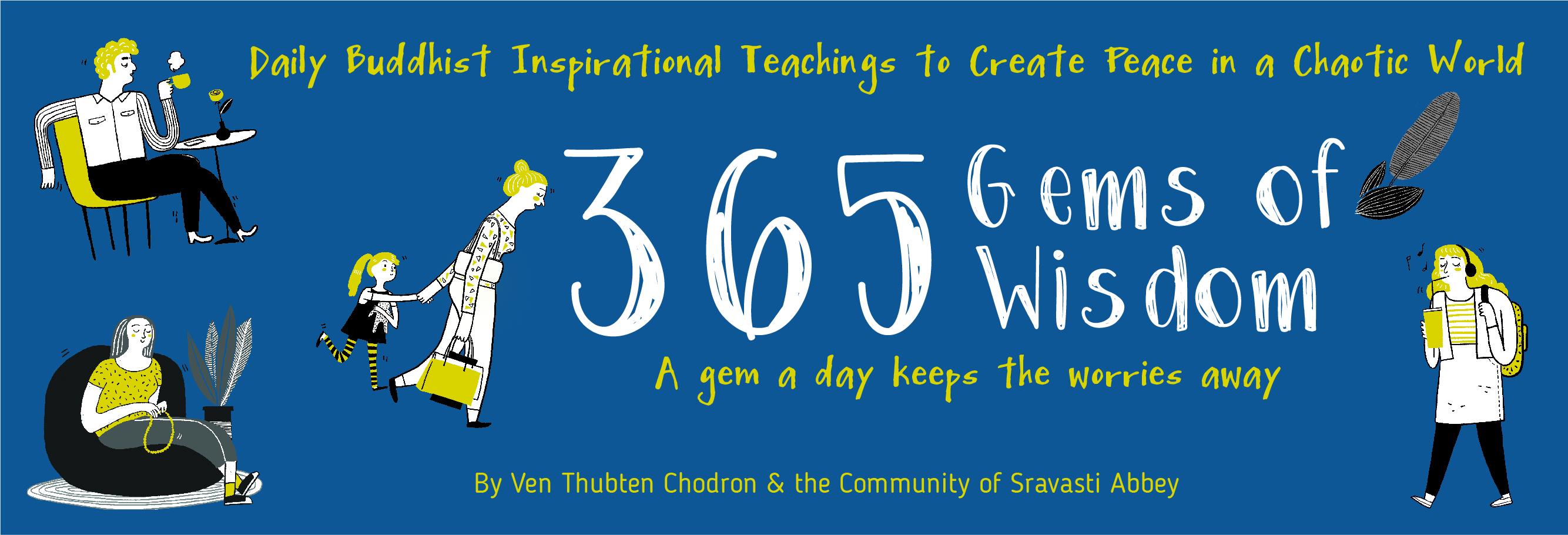January 15 : What Others Think About Us
According to the priorities people have in their life, what they consider advantageous and disadvantageous for fulfilling those priorities will determine action. Practitioners and worldly people have very different priorities. Most of the time we are worldly people, wannabe practitioners. The worldly part tugs at us. It is so hard to let that go and to see there is really no benefit from it. Our whole life, we have been very attached to what other people think about us. That has been the most important thing.
Consider all these honour slayings that happen now and that has happened in the past, people killing each other over their honour. What is that? It is an attachment to a good reputation, isn’t it? Somebody infringed on the good reputation of my family, my clan, or whoever it is, so I am going to kill the person. That is pretty heavy, isn’t it? Is reputation so important, even more important than somebody’s life? That is what happens when we are immersed in that kind of attachment.
The only good use of reputation is if you are trying to benefit others. If you act in a way that you earn a bad reputation, then your ability to benefit others has impinged. That is why there is a Bodhisattva vow of keeping our precepts properly to inspire other people’s faith so that we can be of benefit to them. There is also another one that if our reputation is suffering because of misunderstanding, gossip, or whatever, we should try and correct any misunderstanding, not out of attachment to our reputation, but with the motivation to benefit people. This does not mean we lie and say we did not do some naughty things that we did do. It is not telling a lie to have a good reputation, “I’m going to lie because I want to maintain a good reputation so I can benefit other people by teaching them to abandon the ten non-virtues.” What? Excuse me? When you are not doing it yourself ? That does not make any sense.
The whole thing about the Dharma is that our virtue is not evaluated in terms of whether other people think it is virtuous or not. Our virtue is evaluated based on our intentions and our actions, and we are the only ones who can really do that.
Other people can think what we do is fantastic when it is rotten. They can think it is rotten when what we did is perfectly in accord with the Dharma. That is why we should not be attached to reputation but should listen to what the wise say. If the wise are criticising an action, or pointing out a faulty behaviour in us, then we need to pay attention. Not out of attachment to reputation, but because we know they are coming from a good place and they have the wisdom and compassion to benefit us.
“365 Gems of Wisdom” Volume One (January — March) e-book is out now!

